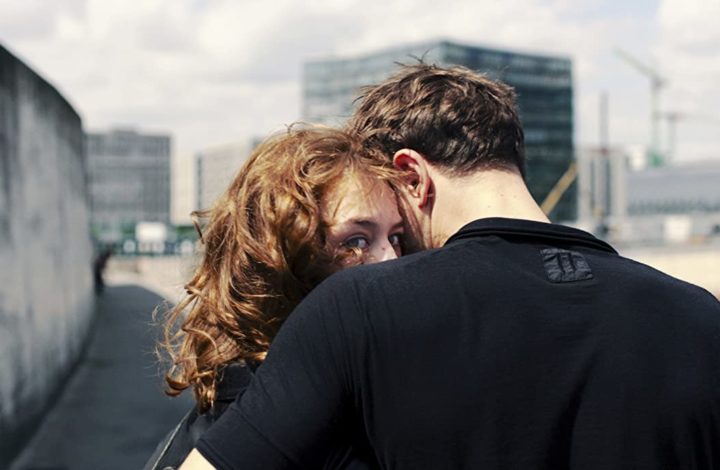
MPAA Rating: NR | Rating: ★★★½
Release year: 2021
Genre: Drama, Fantasy, Romance Director: Christian Petzold
Undine is a fairytale for a secular age. Equally enchanting and enigmatic, Undine is German filmmaker Christian Petzold’s reimagining of an ancient myth transposed into the contemporary European era. Yet familiarity with the legend of water nymph is not necessary for enjoying this tale of romance. Even with its arthouse vibes and understated tone, audiences eager for a thoughtful romantic drama with a number of narrative surprises will take pleasure in the story’s unfolding.
Undine follows Petzold’s previous semi-experimental masterpieces, Phoenix and Transit, though it is not quite at their level in terms of artistry and affectivity. Where those films drew inspiration from cinematic history (Phoenix and Alfred Hitchcock, Transit and Casablanca), Undine is more mythological in scope and meandering in pace. The film tosses us in media res into a breakup conversation at a Berlin cafe between Undine (Paula Beer) and her cheating boyfriend, Johannes (Jacob Matschenz). He is leaving Undine for another woman, and she seems genuinely shocked and heartbroken by the revelation. The conversation is as awkward and upsetting for everyone as one might expect, but then something peculiar occurs: Undine, with a calm sense of conviction, tells Johannes that if he leaves her, she’ll have to kill him. This murderous threat seems out of character for the demure, erudite historian who gives lectures at the nearby museum to Berlin’s tourists about the city’s architectural history. The outcome of this threat will play out over the course of the film’s 90-minute running time.
What follows in Undine is one of the more delightfully odd meet-cutes I’ve seen in a film: almost immediately after Johannes has left Undine, she encounters the charming down-to-earth Christoph (Franz Rogowski) in the same cafe. There’s an immediate connection; the attraction which was absent between Undine and Johannes is quite conspicuous between Undine and Christoph. Their love story (and their fate, I suppose) is sealed when Christoph bumps the cafe’s massive aquarium, causing it to burst and completely soak the new couple. As they lie on the floor in a puddle, Christoph carefully picks bits of glass out of Undine’s blouse. The moment is both unbelievably intimate and entirely ridiculous; I suppose all true love is.
On-screen romantic chemistry is a difficult thing to define with any real accuracy—you know it when you see it. We can certainly see it between Beer and Rogowski, who infuse Undine and Christoph with a natural playfulness that matures over the film into a certain erotic gravitas. They truly love each other, and it shines through in every scene where they’re together (as well as every moment they’re apart). As their story unfolds, strange and unsettling events occur, leading to a conclusion which will challenge the young couple’s commitments. The reasons behind these events and behaviors is not ever made entirely clear, either to the audience or the characters themselves. In this way, Undine is comfortable presenting us with the mysterious and miraculous without ever feeling compelled to explain how or why. Which is probably just as well. After all, how does one explain the sense of attraction one feels towards a newfound friend or lover? Of course, in love there are commitments to be made, values to uphold, promises to make, etc. But this unfathomable moment of attraction between two people—when you see someone and you lock eyes and you just kind of know that there’s something there between you—is a phenomenon Undine honors beautifully in its telling.
IMDB Listing: https://www.imdb.com/title/tt11617052/
Leave a Reply